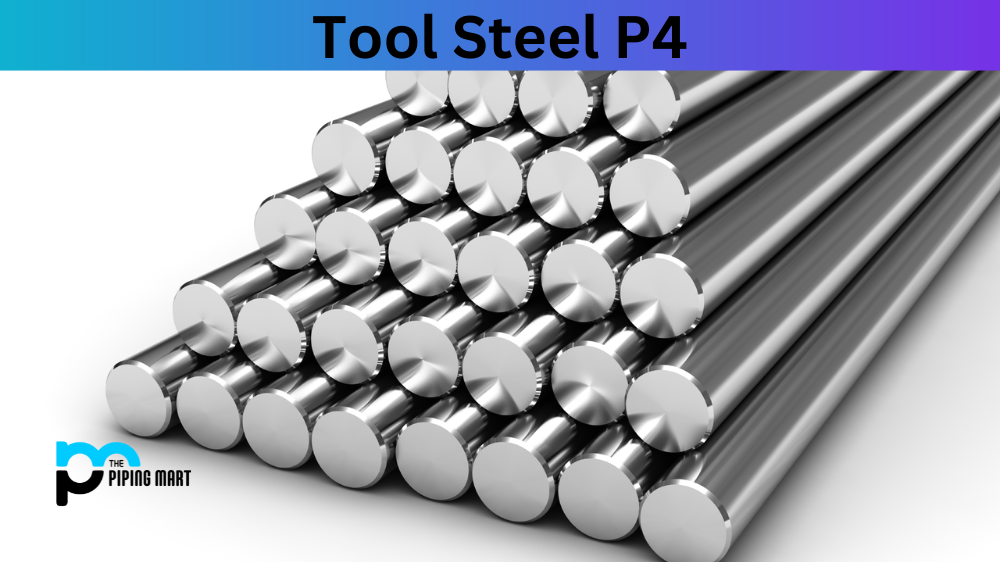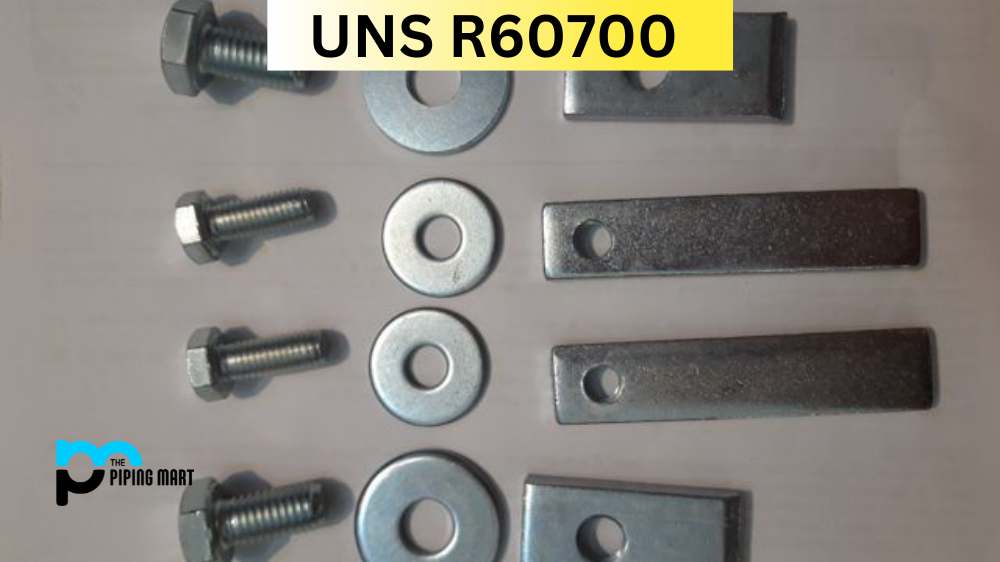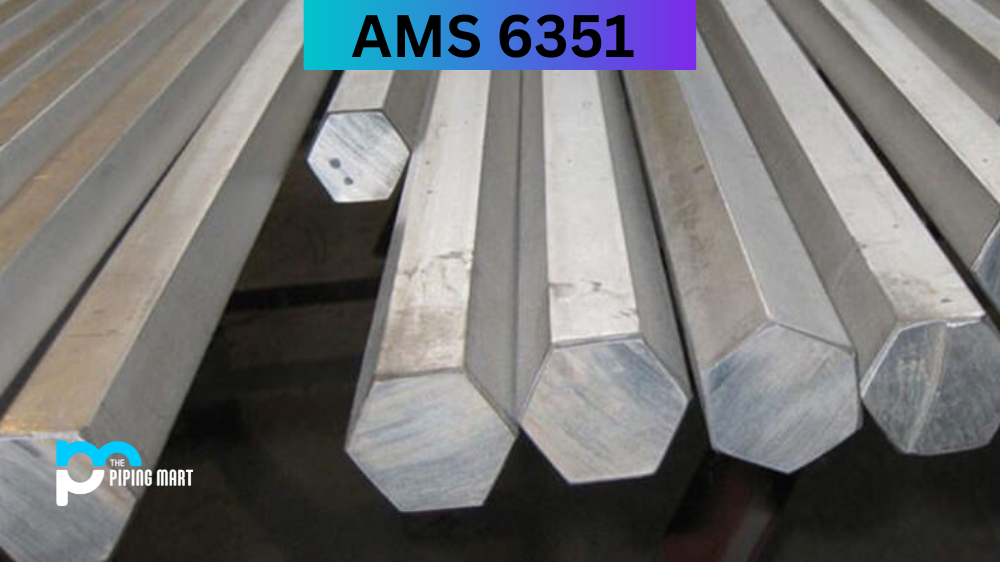Tool steel P4 is an alloy that combines molybdenum, vanadium, and tungsten. UNS T51604 offers excellent wear and corrosion resistance, high heat resistance and hardness, and good machinability and weldability. This makes it ideal for many applications, including cutting tools and dies, aerospace components, plastic moulding, and automotive parts. Let’s take a closer look at the properties of P4 Tool Steel that make it so valuable for these types of applications.
P4 Tool Steel Composition
| Element | Content (%) |
|---|---|
| Fe | 92 |
| C | 0.12 |
| Mn | 0.20-0.60 |
| Si | 0.10-0.40 |
| Cr | 4.00-5.25 |
| Mo | 0.40-1.00 |
| Cu | 0.25 |
| P | 0.03 |
| S | 0.03 |
P4 Tool Steel Physical Properties
| Properties | Metric | Imperial |
|---|---|---|
| Density | 7.85 g/cm3 | 0.284 lb/in3 |
P4 Tool Steel Mechanical Properties
| Properties | Metric | Imperial |
|---|---|---|
| Hardness, Knoop (converted from Rockwell C hardness) | 426 | 426 |
| Hardness, Rockwell C | 42 | 42 |
| Hardness, Vickers | 410 | 410 |
| Tensile strength, ultimate | 1290 MPa | 187000 psi |
| Tensile strength, yield | 1035 MPa | 150100 psi |
| Elongation at break (in 50 mm) | 15.80% | 15.80% |
| Bulk modulus (typical for steel) | 140 GPa | 20300 ksi |
| Charpy impact (V-notch) | 43.0 J | 31.7 ft-lb |
| Poisson’s ratio | 0.27-0.30 | 0.27-0.30 |
| Elastic modulus | 190-210 GPa | 27557-30458 ksi |
P4 Tool Steel Equivalent
- DIN 1.2341
- ASTM A681
- UNS T51604
P4 Tool Steel Uses
Tool Steel P4 is often used to cut tools that require a sharp edge, like drills and milling cutters. It is also used to form dies subject to abrasions, such as punches and blanking. Aerospace components such as aircraft wings and fuselages can also benefit from their strength. At the same time, plastic moulding tools make use of their heat resistance when exposed to high temperatures during the injection process. Automotive parts also take advantage of their wear resistance to ensure they remain in working condition over time.
Corrosion Resistance
Tool steel P4 has excellent corrosion resistance due to its high chromium content, which helps prevent rust formation on the surface when exposed to moisture or air-containing salt particles. The combination of molybdenum, vanadium, and tungsten ensures it retains its corrosion-resistant properties even after prolonged exposure to harsh environments such as those found in industrial settings or near bodies of water where the salt spray can be present.
Heat Resistance
The combination of molybdenum, vanadium, and tungsten provides Tool Steel P4 with excellent heat resistance, making it suitable for applications that require exposure to higher temperatures for extended periods without losing structural integrity or becoming brittle over time. This makes it ideal for use in automotive parts or aerospace components because they must withstand extreme temperatures without degrading too quickly over time.
Heat Treatment
Heat treatment is necessary for Tool Steel P4 when working with larger pieces because the alloy can become brittle if not treated correctly before working with them. The heat treatment process involves heating up the metal until it reaches a specific temperature, then cooling it down rapidly by quenching it in oil or water before tempering it at lower temperatures. This process allows the metal to reach optimal hardness while maintaining flexibility so that machining or welding is possible without any issues arising during operation or assembly.
Welding
Welding tool steel P4 is a difficult and time-consuming process due to its high melting temperature of 2,750℃. This steel is commonly used for parts that require extensive wear protection, making it critical to create a reliable weld. It is essential to heat up the material gradually before welding in order to reduce the risk of stress cracking or warping. It’s also important to use a clean surface with no oxidation or moisture, as contaminants can cause significant problems during the welding process. With the right tools and techniques, anyone can successfully weld tool steel P4 for a long-lasting, durable connection.
Machining
Tool steel P4 machining is precise and time-consuming, but its benefits are immense. It requires intricate attention to detail as well as knowledge of the materials used and their characteristics. The result is a customized part machined to precise tolerances that can hold up in even the toughest situations. With tool steel P4 machining, you can expect higher quality parts that perform better and last longer in the most demanding applications. This manufacturing method ensures a precision fit and finishes for each part, reducing the risk of costly errors. Tool steel P4 machining produces results you can trust – making it an invaluable asset for any industrial application.
Conclusion:
In conclusion, Tool Steel P4 is an excellent choice for many applications due to its wear resistance, corrosion resistance, good machinability/weldability, and ability to retain structural integrity under extreme conditions such as high temperatures or corrosive environments found in industrial settings and near bodies of water respectively. Also, proper heat treatment should be performed if working on larger pieces since this will help ensure optimal strength while retaining ductility. Machining/welding is possible afterwards without any issues arising during operation or assembly afterwards. For anyone looking for an all-around reliable tool steel option who needs something tough enough for their projects – look no further than Tool Steel P4! Intended Audience: Engineers and other professionals who need reliable tool steels for their projects

Abhishek is a seasoned blogger and industry expert, sharing his insights and knowledge on various topics. With his research, Abhishek offers valuable insights and tips for professionals and enthusiasts. Follow him for expert advice on the latest trends and developments in the metal industry.




